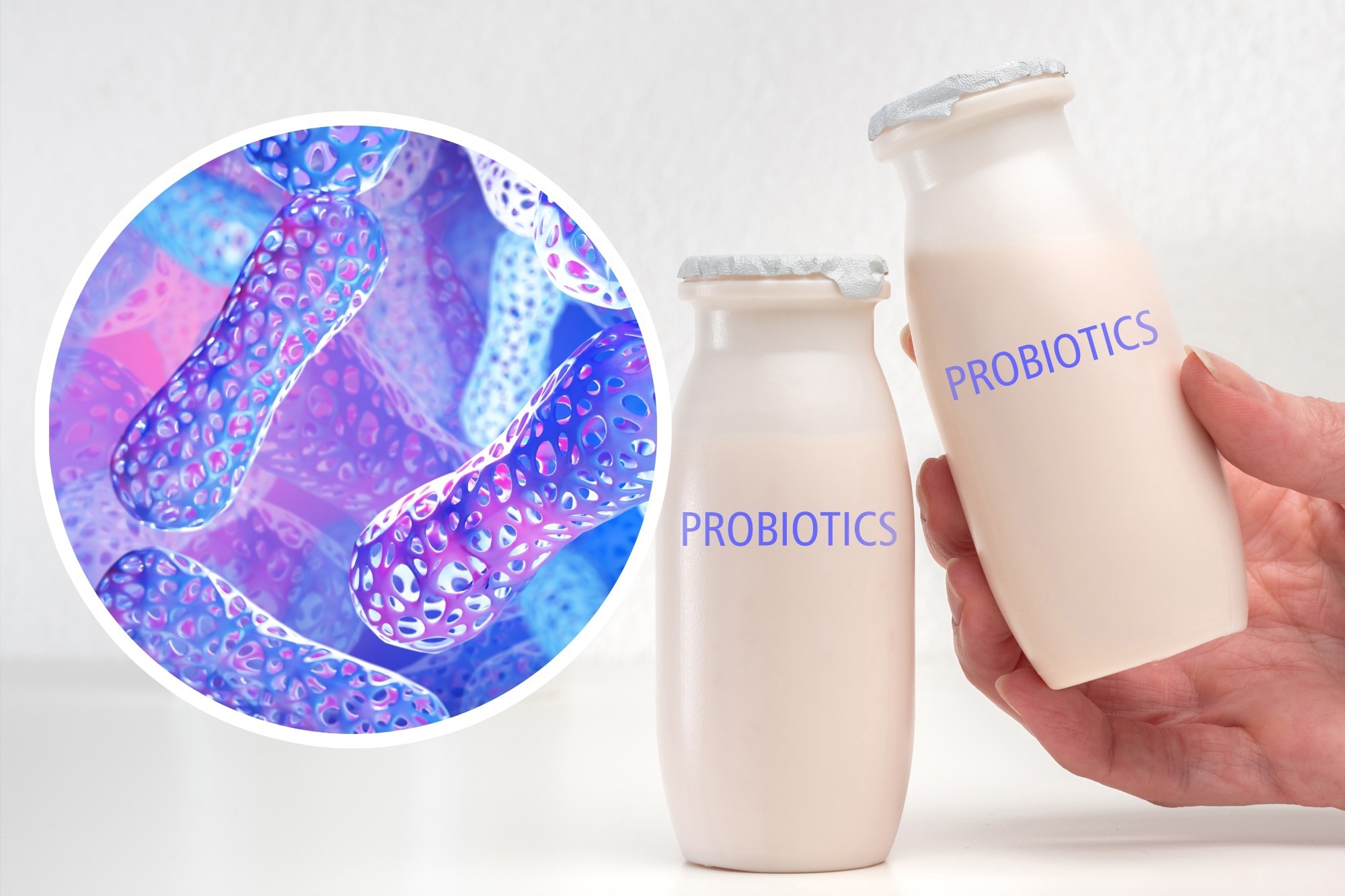Do probiotics dietary supplements actually make a distinction throughout antibiotic treatment_ In all probability not, says analysis

In a current overview and meta-analysis printed within the BMC Drugs Journal, researchers evaluated earlier work conducting managed trials of sufferers present process antibiotic remedy with and with out antibiotic supplementation.
Their outcomes elucidated that probiotic supplementation didn’t change intestine microbiome variety between case and management cohorts, contradicting in style perception.
Research: Probiotic supplementation throughout antibiotic remedy is unjustified in sustaining the intestine microbiome variety: a scientific overview and meta-analysis. Picture Credit score: FOTOGRIN/Shutterstock.com
Results of antibiotics on intestine flora
Antibiotics are identified to change intestine microbiota qualitatively, considerably reducing the densities of some species and, in excessive circumstances, driving them to extinction.
This leads to low-diversity-gut-microbiome and permits probably pathogenic micro organism, together with Staphylococcus aureus, Clostridioides difficile, and Clostridium perfringens, to dominate intestine bacterial communities. This imbalance, referred to as ‘dysbiosis,’ has been related to quite a few well being circumstances similar to neurological dysfunction, inflammatory bowel syndrome, and most cancers.
Intestine microbiota often recovers normalcy with out medical intervention. Nevertheless, the restoration period can differ dramatically given the dose, spectrum, and period of antibiotic remedy, affected person age, and, most significantly, the time between successive antibiotic programs.
Earlier analysis has estimated two weeks for this restoration in wholesome younger adults, however this will increase drastically if a brand new antibiotic course is run earlier than normalcy is achieved.
Probiotics, preparations containing reside micro organism, yeast, or mixtures of those microbes, are sometimes prescribed to stop or reverse dysbiosis. Analysis has investigated the scientific outcomes of probiotic consumption throughout remedy, with various stories on their efficacy in microbiota restoration post-treatment. Nevertheless, their impacts on fecal microbiota variety stay missing.
Vital inter-individual variations in intestine flora species have traditionally confounded ‘regular intestine microbiota composition’ definitions, making establishing standardized measurement strategies difficult.
Researchers and clinicians borrow from ecological variety measures, particularly α- and β-diversity indices, to report intestine group abundance and variety. α-diversity is the range inside a pattern, whereas β-diversity is the range between totally different pattern units.
In regards to the examine
Within the current examine, researchers employed meta-analytical approaches to guage the consequences of probiotic dietary supplements in sustaining or restoring intestine microbiota variety throughout antibiotic remedy.
They started by collating 19,596 information from the Medline, Embase, and Cochrane Central Register of Managed Trials (CENTRAL) databases. They then used the PICO-S format (inhabitants, intervention, comparability, final result, and examine design) to display screen the research.
Title, summary, and full-text screening recognized 15 publications for the qualitative synthesis (overview) and 5 for the quantitative (meta-analysis). The overview comprised 887 sufferers, whereas the meta-analyses reported 335 sufferers. Researchers extracted examine traits, cohort particulars, antibiotic and probiotic descriptions, and outcomes from every examine.
Shannon variety indices and noticed Operational Taxonomic Items (OTUs) had been subsequently calculated for the quantitative analyses.
Lastly, bias and certainty assessments had been carried out utilizing the Cochrane risk-of-bias (RoB2) and the Grading of Suggestions, Evaluation, Growth and Analysis (GRADE) instruments, respectively.
Research findings
The current overview and meta-analysis didn’t reveal that probiotic consumption can forestall antibiotic-induced dysbiosis.
Intestine microbiome Shannon variety between circumstances (sufferers consuming probiotics) and controls (these not consuming probiotics) had been, on common, simply 0.23 (not important), with solely one of many 5 research included displaying a statistical distinction between cohorts. OTU outcomes had been comparable, with no observable variations between case and management cohorts.
Three of the 9 research reporting α-diversity indices did present enhancements in α-diversity indices between the case and teams on probiotic supplementation. Nonetheless, these indicators had been weak and remained unexplained.
Solely one of many 5 research reporting β-diversity confirmed enhancements for case cohorts. Nevertheless, these weren’t important sufficient to benefit the constructive fame that probiotics at present take pleasure in.
Taxonomic analyses of intestine microbiome revealed that on the phylum stage, Firmicutes and Bacteroidetes illustration decreased considerably and had been changed by Proteobacteria following antibiotic administration.
These outcomes had been constant no matter the cohort examined. These alterations had been spontaneously rectified in a most of 56 days, with probiotics not contributing to the hastening of normalcy.
On the genus stage, probiotic supplementation was proven to take care of the extent of the Bifidobacterium genus, which within the management group decreased throughout antibiotic remedy. It took a most of 35 days for people not consuming probiotics to return to pre-treatment ranges.
Conclusions
Within the current examine, researchers utilized a scientific strategy and a separate meta-analysis to guage the advantages of probiotic consumption on intestine microbiota upkeep throughout antibiotic remedy.
Their outcomes debunk the notion that probiotic consumption throughout remedy can forestall or reverse alternations to the intestine flora, a attribute final result of antibiotic administration.
No modifications in intestine microbiota had been noticed between sufferers who consumed probiotics and people who didn’t within the Noticed Operational Taxonomic Items meta-analysis. Shannon variety indices reported comparable outcomes, with just one examine reporting slight enhancements in variety measures on probiotic consumption.
Qualitative evaluation revealed that three-of-nine and one-of-five research improved α- and β-diversity indices, respectively. Nevertheless, these had been short-term and never notable sufficient to suggest probiotics as a therapeutic treatment for dysbiosis.
“The tendency of microbiome restoration after a 3–8-week follow-up interval, no matter probiotic supplementation and remission of the variations between the intervention and management teams, challenges the questions on the advantages of routine probiotic supplementation throughout antibiotic remedy.”



